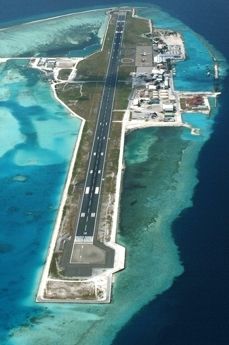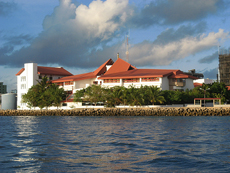The government will provide the previously pledged old-age pension of MVR5000 per month (US$325) through an insurance scheme rather than in cash handouts, Finance Minister Abdulla Jihad has told the People’s Majlis Budget Committee.
However, individuals over 65 will continue to receive the current monthly pension of MVR2300 ($149) next year, a Finance Ministry official told Minivan News.
In addition to raising the pension from MVR2300 to MVR5000, President Abdulla Yameen had made last minute promises including “unlimited” health care under the state’s health insurance scheme Aasandha, designating a general practitioner to each family, creating 94,000 new jobs, providing MVR10,000 (US$650) for fishermen regardless of fish yield, and MVR8000 (US$518) for farmers.
Speaking at a Budget Committee meeting, Jihad said: “I do not think the current budget includes elderly benefits. The president has decided to do that through an insurance mechanism.”
In November, Fisheries Minister Dr Mohamed Shainee said the government will not be handing out cash to fishermen, but would introduce an insurance scheme whereby fishermen will be asked to pay a monthly premium of MVR500 (US$ 32) during the fishing season to gain MVR10,000 (US$ 650) during the off-season.
“There is a lot of support for the policy from fishermen. This will incentivise the fishermen. They catch more than MVR10,000 on good fishing days. But if the weather is bad or if the catch is low, there is a degree of despair. We are providing an incentive to overcome this despair to get ready for the next fishing season,” Shainee told local media.
The government will need to start a roster of fishermen, and divert funds from the MVR100 million (US$6.5 million) fuel subsidy to set up the insurance scheme, he added.
The insurance scheme offers come amidst a looming financial crisis. The World Bank has warned the country’s economy is at risk due excessive state expenditure. Further, the government is pursuing untenable financing measures that pose “macro-risks” including possible devaluation of the rufiyaa, the World Bank said.
At present, public debt stands at an “unsustainable” 81 percent of GDP, but is projected to reach 96 percent by 2015, the World Bank said.
Despite promising to curb state expenditure on assuming office, Yameen has only made modest cuts such as halving the presidential salary and reducing the salaries of state and deputy ministers.
Further, the government on Tuesday proposed a record MVR 17.5 billion (US$ 1.1 billion) budget with a projected deficit of 2.2 percent. Over 70 percent of the budget accounts for recurrent expenditure.
Of the MVR 17.5 billion, only MVR 500 million (US$ 32 million) will be spent on new development projects while MVR 400 million (US$ 26 million) will be spent on fulfilling Yameen’s presidential pledges, Jihad told the budget committee.
The government plans to plug the deficit by borrowing from commercial banks. The government has proposed obtaining a US$25 million from the State Bank of India to finance the projected deficit of MVR886,622,881 (US$ 57,201,476).
The parliament’s Finance Committee last week recommended the Majlis approve a US$29.4 million loan from the Bank of Ceylon for budget support for the current year.
The loan which carries a grace period of one year is to be paid back in monthly installments of US$ 490,000 at an interest rate of 8 percent.
Quoting the saying “beggars cannot be choosers,” Jihad said the Maldives has no choice but to borrow from commercial banks at high interest rates.
“We could go to Bank of New York, but they will not lend to us. The best bet now is Bank of Ceylon,” he said.
“The risk factor is high in the Maldives so some parties are increasing the interest rates. So if we have political stability in the Maldives, it is possible [the interest rate] may decrease. It will not happen all of a sudden but it will get better when that risk decreases in the future,” he added.
 On December 8, the Transport and Communication Ministry revealed that it would finish drafting plans and begin the groundwork within a 100 days to develop the Ibrahim Nasir International Airport (INIA) to be able to cater to 5 million passengers.
On December 8, the Transport and Communication Ministry revealed that it would finish drafting plans and begin the groundwork within a 100 days to develop the Ibrahim Nasir International Airport (INIA) to be able to cater to 5 million passengers. held today that the government was drafting a policy to “bring major development to IGMH in a very short period of time to an extent never before seen”.
held today that the government was drafting a policy to “bring major development to IGMH in a very short period of time to an extent never before seen”. Maldives National Defence Force (MNDF)’s 100 day strategic plan includes the submission of various amendments to relevant laws – including the Armed Forces Act and Narional Security Act – to the parliament, and the establishment of a ‘justice system’ within the force.
Maldives National Defence Force (MNDF)’s 100 day strategic plan includes the submission of various amendments to relevant laws – including the Armed Forces Act and Narional Security Act – to the parliament, and the establishment of a ‘justice system’ within the force.